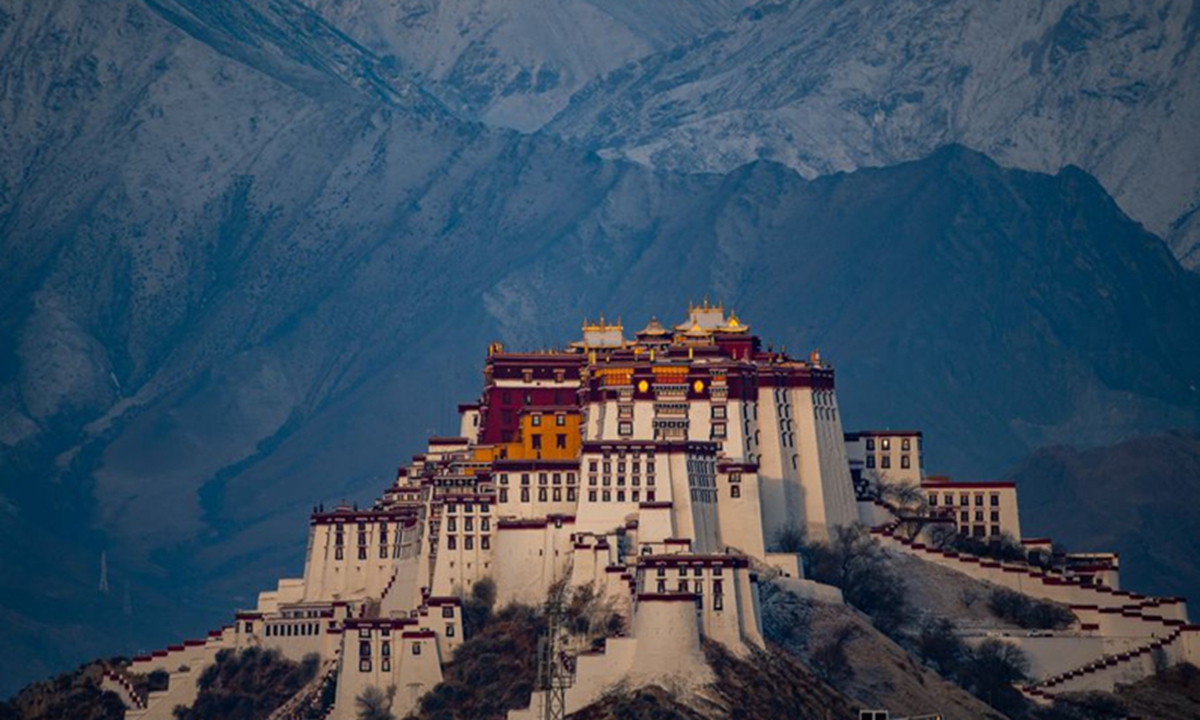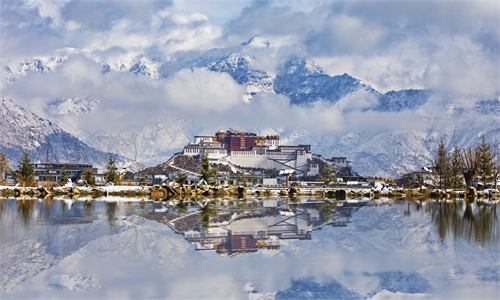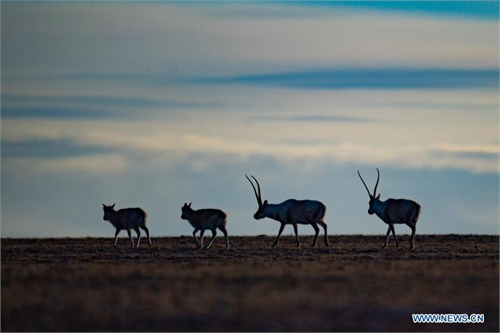
Potala Palace in Lhasa, Southwest China's Tibet Autonomous Region. Photo:Xinhua
The US Congress on December 21 passed the Tibetan Policy and Support Act, a bill that aims to step up US interference with Southwest China's Tibet Autonomous Region. According to media reports, the bill requires China to allow the opening of a US consulate in Lhasa, regional capital city of Tibet, and it will create a US policy that the selection of successors to the Dalai Lama is a decision to be made only by Tibetans, free from the so-called Chinese government interference.
In October, the US appointed a so-called special coordinator for Tibetan issues to meddle with China's domestic affairs and undermine Tibet's development and stability. In November, Lobsang Sangay, head of the so-called Tibetan government-in-exile, visited the White House. Merely a month later, Washington passed a bill on Tibet. US political elites remain on the same page to crack down on China, with Tibet being one of the few "cards" it can play. Against this backdrop, it is anticipated the US would occasionally play tricks on Tibet.
Washington has posed the idea for many years of setting up a consulate in Lhasa. Generally, the aim of a country opening a consulate includes providing visa services to local people and supplying consular protection to its own citizens. Consulates tend to be established in cities where Chinese and Americans have frequent exchanges, such as Shanghai and Guangzhou. In comparison to other inland cities, it is unnecessary to build a consulate in Tibet. Xin Qiang, deputy director of the Center for American Studies at Fudan University, said that Washington obviously has ulterior motives.
In terms of the successor to the Dalai Lama, it is clear that Washington harbors a political intent. The reincarnation of the Dalai Lama is not a personal decision. It follows certain religious traditions and rituals and must be approved by the Chinese central government since the Qing Dynasty (1644-1911). But now Washington labels it as "interference."
Xin said that some anti-China hawks are considering how to play the "Tibet card." If the selection of the Dalai Lama's successor abides by religious convention and traditional rules, they cannot make big waves on the Tibet question any longer. Even though the "Tibetan government-in-exile" may play some tricks, their influence and appeal are far from those comparable to the Dalai Lama. This signals the anxiety of these US anti-China forces.
Issues related to Tibet concern China's sovereignty and territorial integrity. They are China's internal affairs that allow no foreign interference. The Chinese government is determined to safeguard national sovereignty, security and development interests. Apart from further damaging overall China-US cooperation and bilateral relations, Washington's tricks on the Tibet question have no other effect.
President-elect Joe Biden said in September that he would meet the Dalai Lama if he were elected. The international community is speculating what kind of policy toward Tibet the incoming Biden administration will adopt.
Dressing up as the "spiritual leader" of Tibetan Buddhism with anti-China sentiments, the Dalai Lama seems to be well known in the West. Several former US presidents, including Barack Obama, met the Dalai Lama in the White House. But the meetings were low profile in a bid to avoid irritating China. This mirrors Obama's restraint over the Tibet question in comparison to the US incumbent president. We cannot rule out the possibility that Biden will meet the Dalai Lama after assuming office, but it is expected his administration will return to the restraint of Obama's era, and will not engage in many aggressive provocations on the Tibet question.
In the face of Washington's tricks on the Tibet question, China should proactively make more narratives in public opinion. China should try to make the international community aware of the facts in Tibet, such as introducing its policy in the region and the tradition of how to confirm the succession of the Dalai Lama. Beijing should encourage those friendly to China to visit Tibet in a bid to see the real image of the region, instead of letting Western society be deceived by the Western media.


